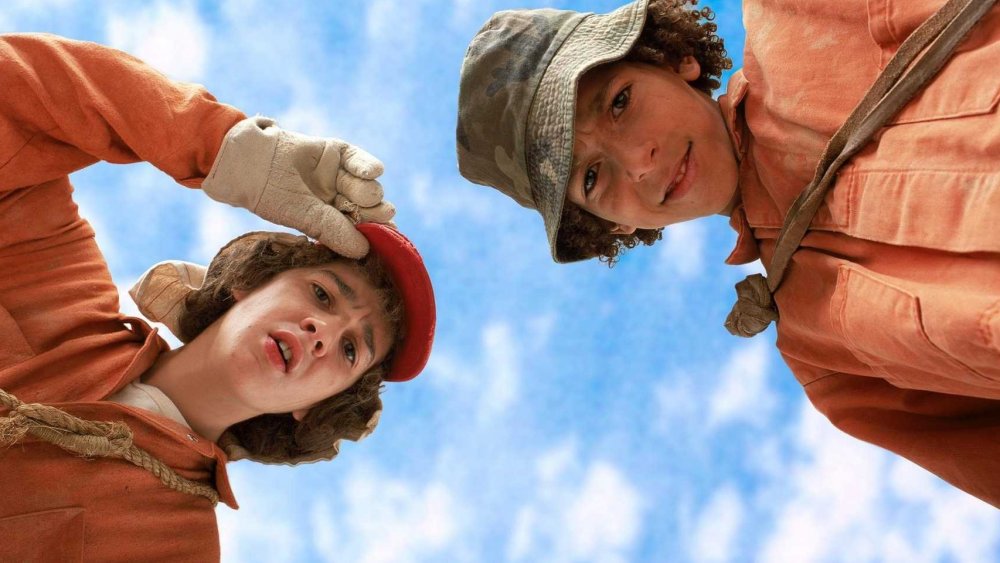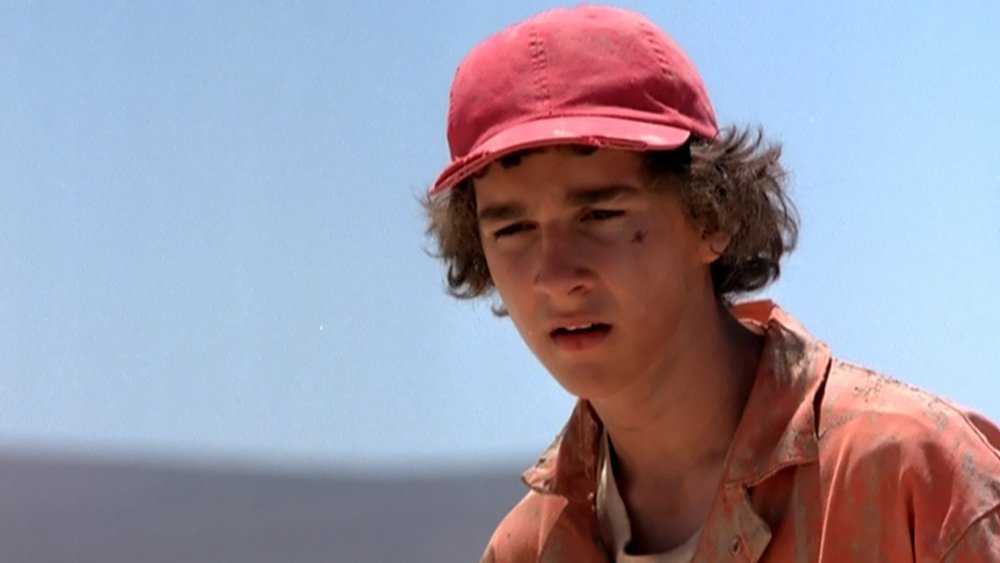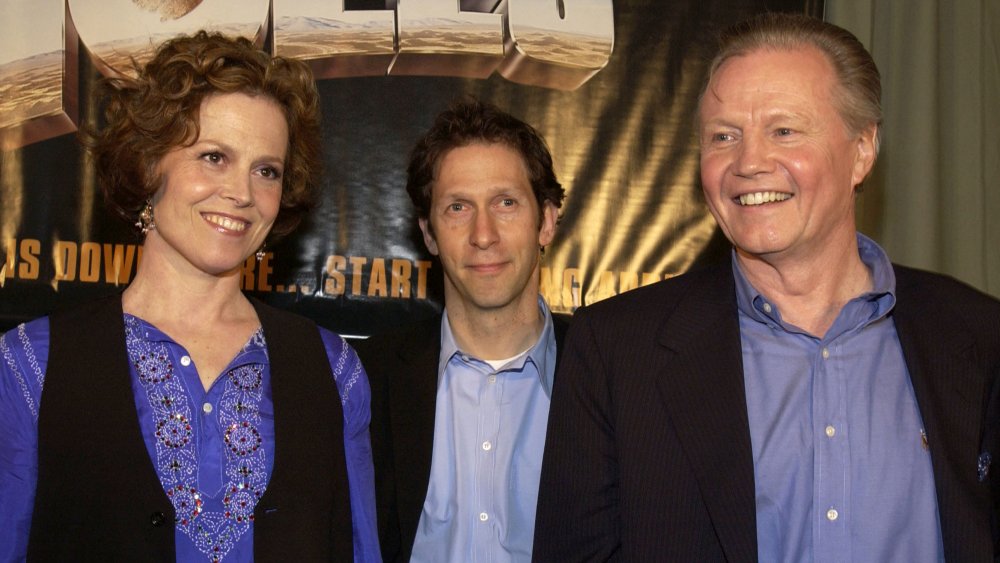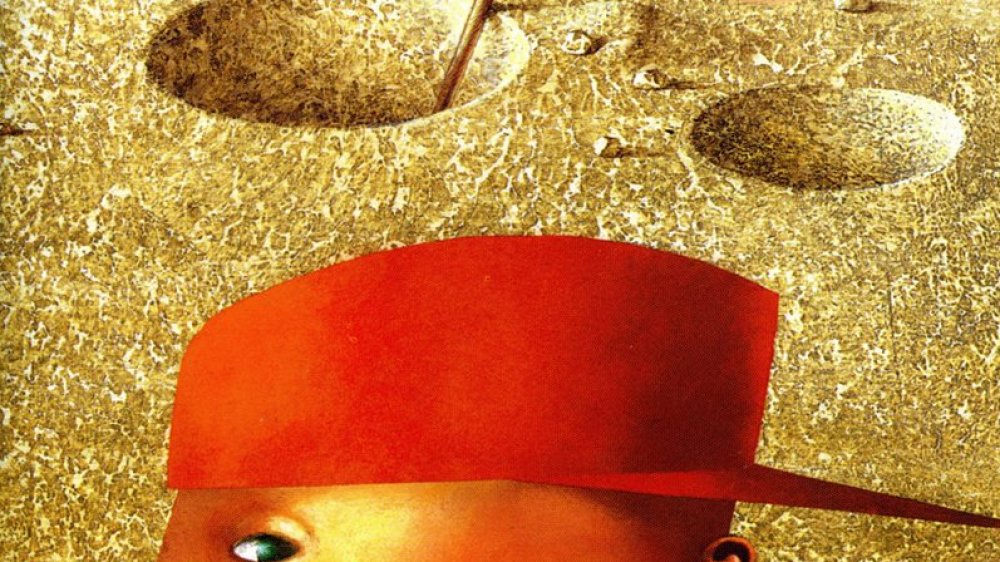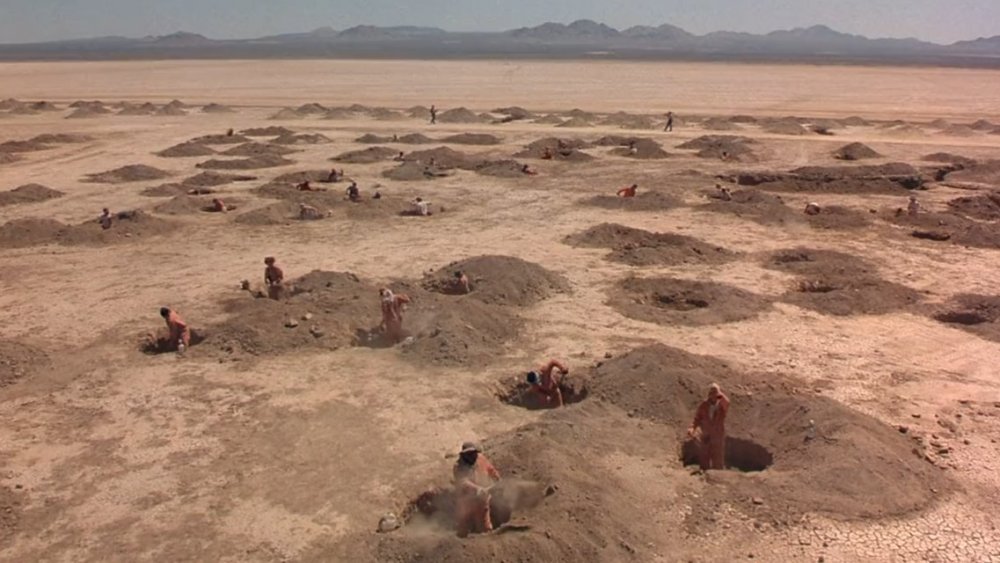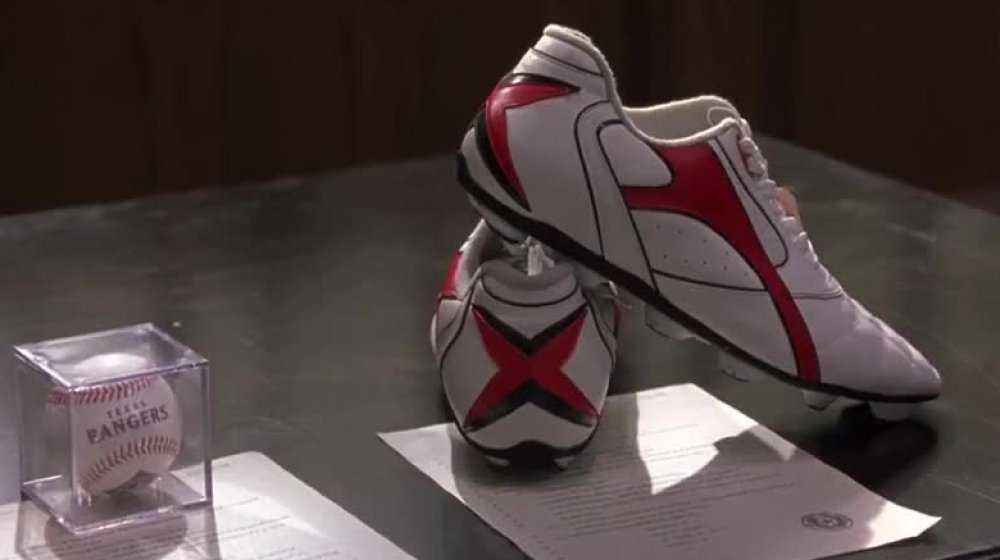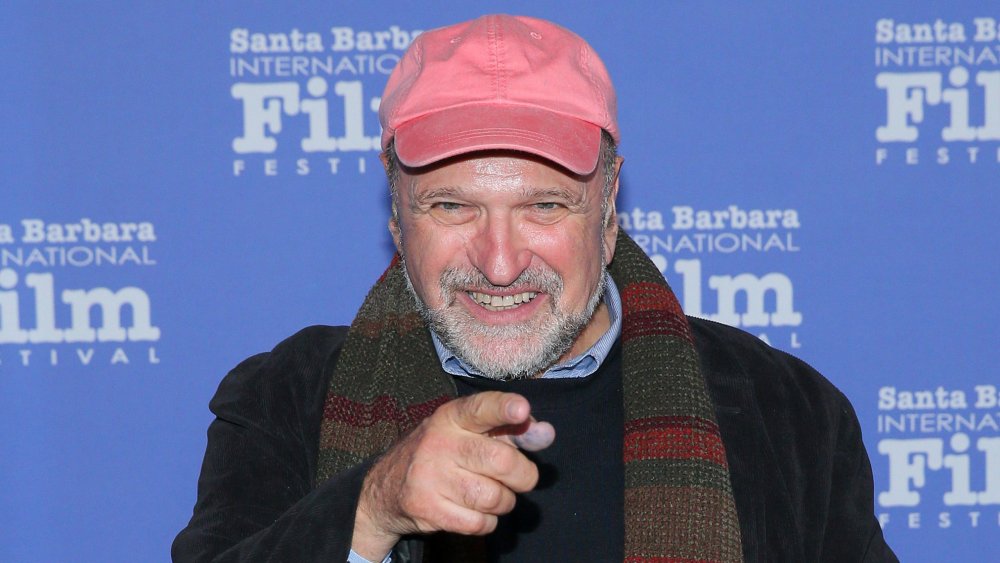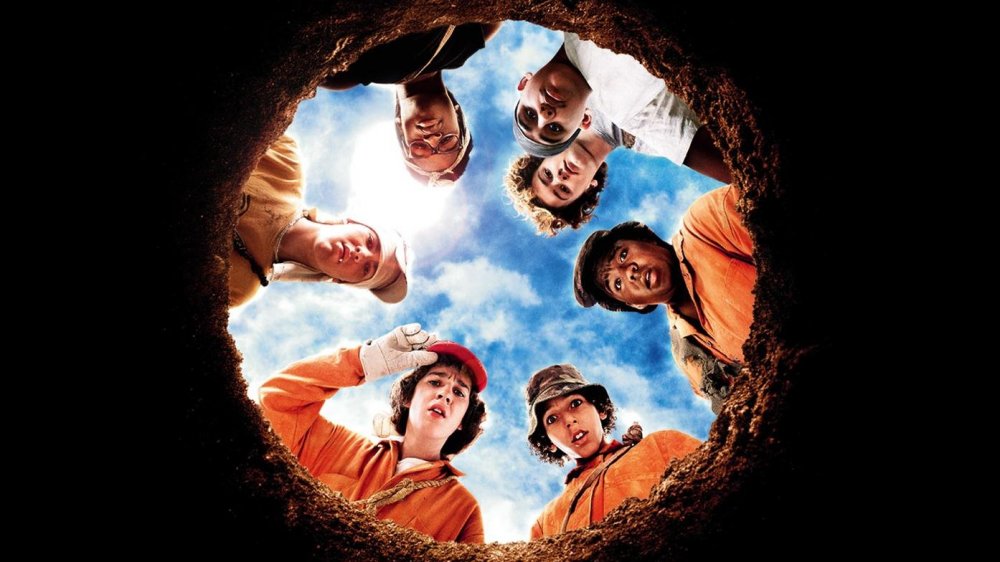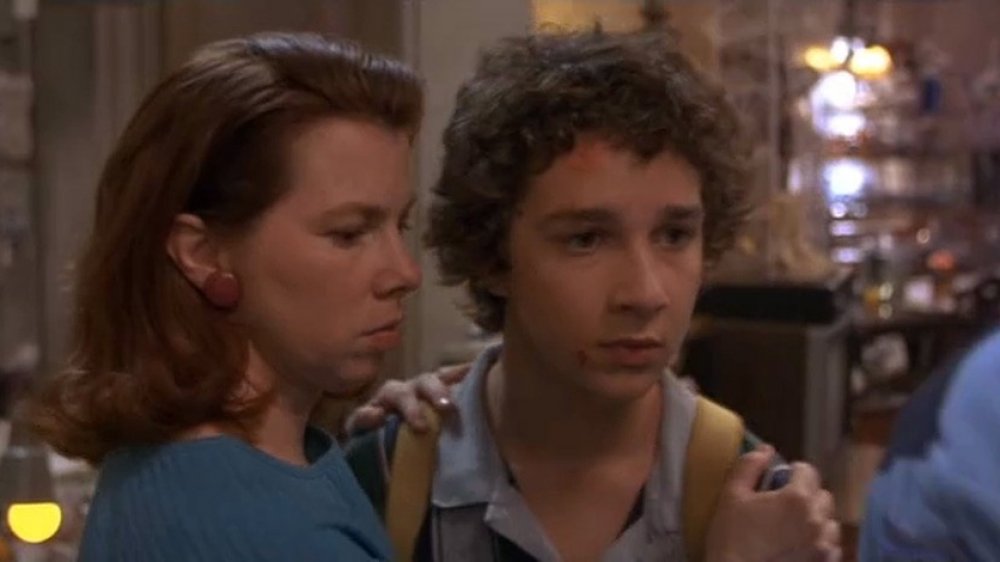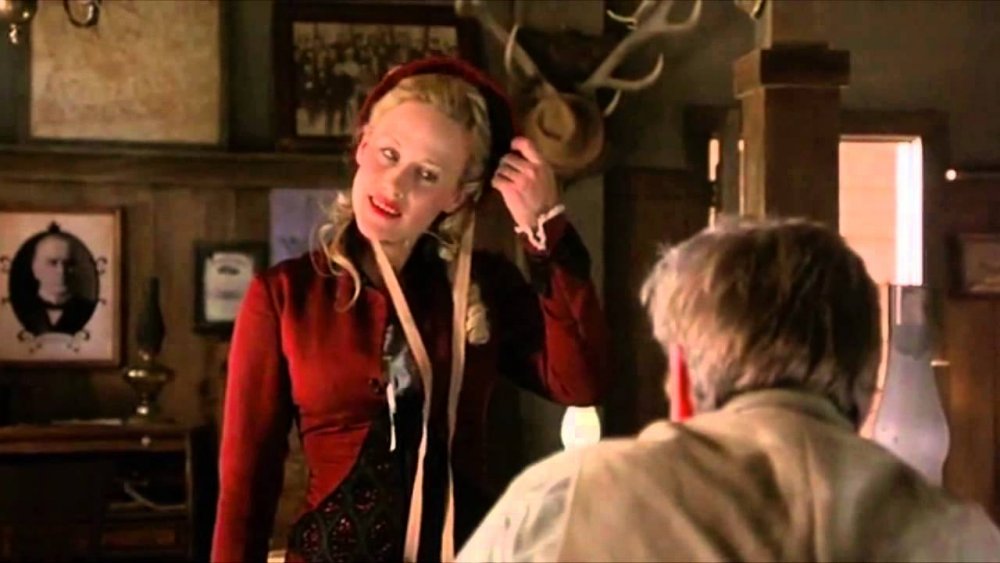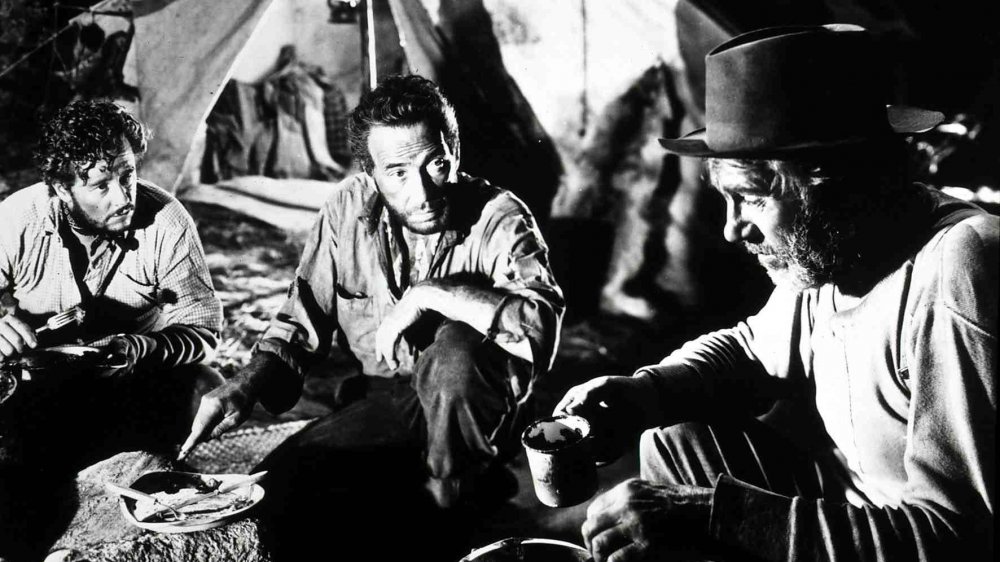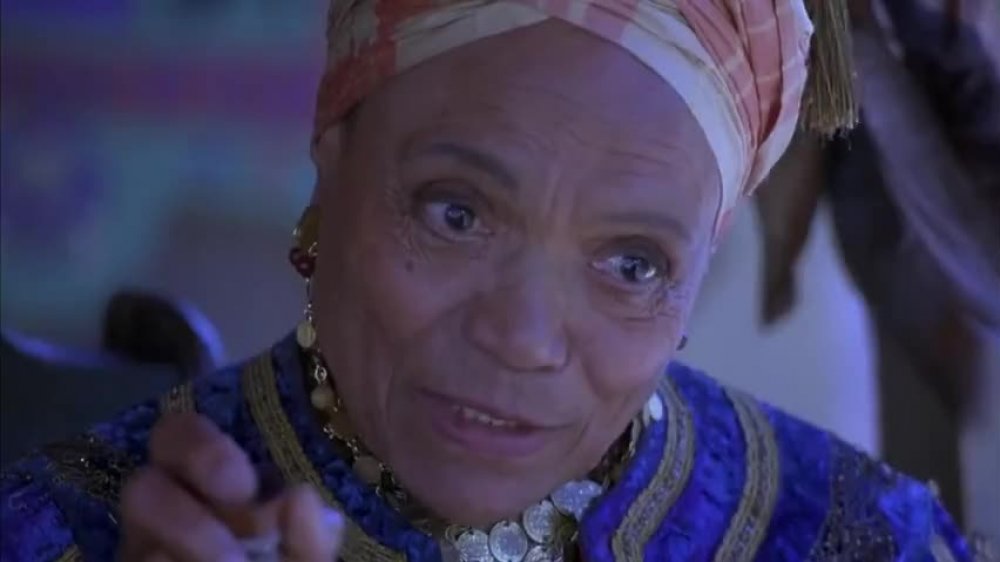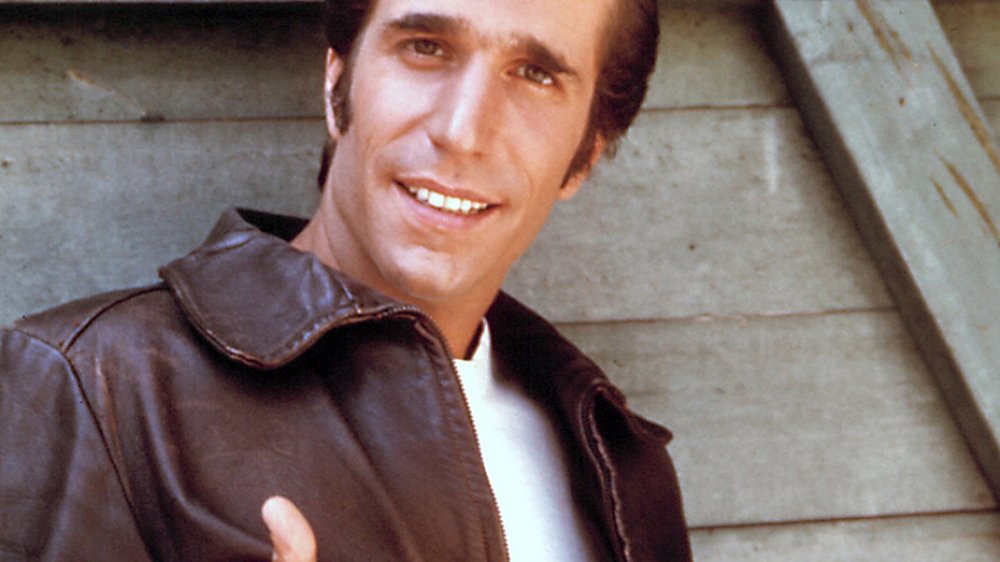Things Only Adults Notice In Holes
Louis Sachar is the YA novelist behind such elementary school classics as the Wayside School books and the Marvin Redpost series, light-hearted comedies filled with supernatural events and whimsical characters. His 1998 novel Holes, set in a juvenile detention work camp, must have come as a shock to Sachar's young fans. There's a fairytale kind of magic at the heart of Holes — the power of belief is a major theme — but the story confronts issues of racism, flaws in the justice system, homelessness, and child neglect along the way.
Tweens loved the book, and so did critics. It hit the New York Times bestseller list, picked up numerous YA fiction awards, and then (perhaps inevitably) was acquired by Disney to be made into a movie. Sachar adapted the novel to screenplay himself, and in 2003 the feature was released, directed by Andrew Davis and starring Shia LeBoeuf in his feature debut with a star-studded supporting cast.
Holes was only a modest success at the box office, but has enjoyed an extended shelf life thanks to the persistent popularity of the book, and is reaching brand new audiences now thanks to Disney+. If you were a fan of the film as a kid, a rewatch may surprise you. These are some of the things that only adults notice in Holes.
Shia nails his feature debut
Shia LaBoeuf has been working steadily since 1998, making us laugh on Even Stevens, battling Transformers, embarrassing Indiana Jones, being an actual cannibal, and — more recently — delivering stunningly vulnerable performances in The Peanut Butter Falcon and the semi-autobiographical Honey Boy, so it can be easy to forget that he hasn't always been a Hollywood staple. His performance in Holes is natural, empathetic, confident... and his feature debut.
Over the course of Holes, Stanley Yelnats grows from a nebbish who meekly accepts his bad luck to a forthright hero who saves his best friend and both of their families. It's a demanding role for any young actor, and LeBoeuf nails it.
Perhaps some of the realism of LeBoeuf's performance as Stanley comes from experience. Just as Stanley was sentenced to 19 months at Camp Green Lake for stealing a pair of sneakers, young Shia got nabbed at the age of 9 trying to steal a pair of Nike Cortezes from a shop in his hometown of Pacoima. Fortunately for Shia, he was released after six hours.
The supporting cast is stellar
When kids pick the movies they want to see, the supporting cast rarely enters into the equation. It's hard to believe there were a lot of children in 2003 begging their moms to take them to the new Jon Voight picture, and no matter how much kids may have enjoyed his legitimately funny performance as the wild-eyed and be-sideburned Mr. Sir, they certainly didn't recognize that this mullet-wigged goofball had an Oscar, a BAFTA award, and three Golden Globes already.
Voight is just the tip of the iceberg when it comes to the Holes cast, which also includes Sigourney Weaver, Tim Blake Nelson, Henry Winkler, Patricia Arquette, Dulé Hill, and the ever-luminous Eartha Kitt as the mysterious Madame Zeroni. Even the smallest roles are populated with reliable characters actors, like Siobhan Fallon Hogan, Nathan Davis, and Roma Maffia. Seriously. That is just more talent that is really required in a $20M Disney movie.
It's a great adaptation
"The book is better" has become a cliche for the simple reason that it's usually true. Movies are a totally different storytelling form from books, with completely different strengths and limitations, so even a "good" adaptation may not capture everything that a book's fans love about it. Subplots are cut, characters are combined, locations are changed... it isn't always to the story's detriment, but it is often without the author's approval.
In an interview with the Austin Chronicle, director Andrew Davis said that he encouraged author Louis Sachar to write the screenplay himself because he was worried that another screenwriter "might not respect the nuances." To Sachar's credit, the screenplay manages the story's parallel time periods and the slow reveal of the characters' backstories in a way that is detailed enough to have dramatic impact, but brisk and lively enough to keep young audiences interested. While the movie doesn't pack quite the same gut-punch as the book — if you read it in fifth grade, you know that gut-punch — it is remarkable in retrospect that Sachar was allowed to go for it.
Trypophobia ia a thing
One of the opening shots of Holes, right around the one-minute mark, is an aerial view looking down on a vast desert floor dotted with holes. Hundreds of holes. Perhaps thousands. What are these holes? Who is digging them? Why? The shot is meant to raise these questions. It may also raise some goosebumps or make you feel uncomfortable. Holes is a movie about a sweaty, awful work camp, of course, so if the shot evokes a queasy feeling, so much the better. As an adult with access to the internet, however, you may discover that you have another reason for being unsettled by Holes' holes.
Trypophobia is an aversion to the sight of irregular patterns of small holes or bumps. People diagnosed with the phobia can experience anything from mild discomfort to severe distress just from seeing clusters of holes like those depicted at the opening of the film. It's hard not to wonder how many trypophobics were accidentally diagnosed by this movie.
18 months for stealing shoes?
At the beginning of the film, young Stanley Yelnats is arrested for stealing a pair of shoes from a charity auction and is sentenced to 18 months at a juvenile detention work camp. A lot of kids in the audience may not have paid much attention beyond recognizing that Stanley was being sent away, but it sounds like a stiff sentence. Stanley has no prior arrests, the crime was non-violent, and he doesn't contest the charges even though he's innocent! Even after it's later revealed that the shoes had belonged to sports hero Clyde "Sweet Feet" Livingston, the punishment doesn't seem fitting.
In the state of Texas, however, where the fictional Camp Green Lake is located, a person between the ages of 10 and 17 stealing goods worth between $1,500 and $20,000 can be sentenced to up to two years in a juvenile detention center. Assuming Sweet Feet's world-famous kicks were worth more than $1,500, Stanley's sentence sounds realistic. Harsh and still unfair, but realistic. How's that for adult perspective?
Holes was directed by a master of old school action movies.
Holes has a surprisingly star-studded cast, and that has to be due in part to its director, Andrew Davis. While Davis may not be a household name, he was already a respected filmmaker with critical and commercial works on his resume when he came on board Holes. None of those films, however, were aimed at kids or families. In fact, Davis' claim to fame was action, having directed Chuck Norris in Code of Silence, Arnold Schwarzenegger in Collateral Damage, Keanu Reeves in Chain Reaction, and Steven Seagal in both Above the Law and Under Siege. Such a master of fisticuffs and 'splosions seems like an odd choice for this YA prison story until you consider that Davis' greatest success was the Academy Award-winning The Fugitive – the story of a man on the run, accused of a crime he didn't commit. Kinda makes you wish Tommy Lee Jones had played Mr. Sir.
That theme song's a banger
Dig it uh oh oh dig it! The Holes theme song, "Dig It," sounds like a work song that might be performed by a chain gang, setting the tone for what's to come. It isn't a traditional tune, though — it's an original by Michael Petralia and Doug E. Fresh, and performed by the young cast, who helped pen their own verses. That most diggable song is the opening number of a soundtrack filled with music from some popular acts of the early aughts, like Beck, Shaggy, the Eels, Keb' Mo', and Moby.
There are a handful of original songs sprinkled throughout credited to Chris "Hambone" Cameron and Richie Davis (the director's brother, go figure) that immediately stand out due to on-the-nose lyrics that practically narrate the action of the scenes they score, but their presence is offset by the inclusion of some great older tracks by Robert Johnson, Dr. John, and Bessie Jones. Also noteworthy: a Little Axe cover of "Down to the Valley," a spiritual tune also heard in Oh Brother, Where Art Thou?
The truth hurts
When Stanley is first sentenced to Camp Green Lake, he turns to his parents and mutters "I've never been to camp before." It doesn't take long for Stanley — and the audience — to realize that camp is still not on the agenda for him. The other kids at the camp are surly, Green Lake itself dried up decades ago, and the only activity available is digging holes. The youngest kids in the audience can understand that Stanley is getting a lesson in harsh reality, even if they don't understand why everyone is being so mean.
A little less easy for kids to grasp is why Stanley lies when he writes home. In a letter to his long-suffering parents, Stanley says that he and his new friends are learning archery and waterskiing on the lake. As one of the other boys snatches the letter from Stanley's hands to tease him, Stanley downplays his homesickness and says he doesn't want his parents to worry. The power of belief is a major theme in Holes, as are the stories we tell to comfort ourselves, both for good and bad reasons. We may want Stanley to ask his parents for help, but Stanley knows something that we all learn as we get older: the truth hurts.
It ain't against the law for you to kiss him...
The various stories of Stanley Yelnats, his no-good dirty-rotten pig-stealing great-great-grandfather, and Stanley's new bestie Zero all collide during a flashback to the tale of "Kissin' Kate Barlow." This Old West sidebar is a strange diversion at first, and its significance to the main plot is revealed slowly, but when the critical turning point of Kate's origin story is finally revealed... well... it is tragic and dramatic no matter what age you are.
While kids may understand that Kate and Onion Sam, the man she loves, are kept apart because the town cannot accept that they are of different racial backgrounds, there is one line that likely escapes them that makes it even worse. The sheriff tells Kate that Sam deserves to be lynched because he kissed a white woman. Kate defends Sam, saying that she initiated the kiss. The sheriff replies, "It ain't against the law for you to kiss him, just for him to kiss you." That one line says so much about systemic racism, you'd need to be an adult to unpack it all.
We don't need no stinkin' movie references!
When references to classic films are dropped into kids' movies, they are clearly meant as Easter eggs for the parents. Whether they're written into the script or just in-jokes made on the set, they're like little winks to those who are still paying attention. Almost halfway through the film, Holes slips in a reference to one of the most quoted lines from any Western, if not from film in general.
When Mr. Sir scolds one of the workers in the camp's mess hall for not buying more onions, the man replies, "We don't need no stinkin' onions," a parody of the infamous line "We don't need no stinkin' badges" from 1948's The Treasure of the Sierra Madre. It's a fitting reference: both films center on the hunt for a treasure that leads the protagonists to appreciate something other than gold. Intriguingly, The Treasure of the Sierra Madre features a character who is unjustly murdered, leaving behind a widow and a peach orchard, which is echoed in the tragic fate of Kate Barlow, famed for her spice peaches (a.k.a. "Sploosh.")
Honorable mention: At the film's climax, when the warden requests Hector's file, she uses the peculiar phrase '"Bring me the file of Hector Zeroni" — an oblique reference to Sam Peckinpah's infamous 1974 bomb Bring Me the Head of Alfredo Garcia.
Stanley's curse
"It's all because of my no-good-dirty-rotten pig-stealing great-great-grandfather!" That's Stanley Yelnats' mantra, his go-to phrase for explaining why so much bad luck befalls him, like stolen sneakers falling on his head from out of a clear blue sky. The line is played for laughs, as is most of Stanley's bad luck, but it cleverly foreshadows the story of Stanley's great-great-grandfather and Madam Zeroni. More importantly, it establishes that Stanley believes that he is cursed.
Even little kids are familiar with the concept of fairness, so the frustration of watching Stanley being punished for a crime he didn't commit was certainly not lost on young audiences. Ditto the frustration of watching Stanley being bullied by the other boys, or giving up his chance at a day off, or taking the blame for stealing Mr. Sir's sunflower seeds. Adults understand, however: Stanley passively takes crap from everybody because he's been trained to believe that he deserves it.
God's Thumb, indeed
Stanley Yelnats' great-grandfather (the son of the pig-stealer) had a fateful encounter with the bandit Kissin' Kate Barlow and was left to die in the desert, only to survive by taking "refuge on God's Thumb," a thumb-shaped mountain top with a spring where he could stay cool.
Of all the supporting actors in Holes for kids to not recognize, perhaps the most ironic is Henry Winkler, known to a generation of kids as the coolest of the cool, Arthur "the Fonz" Fonzarelli from the TV show Happy Days. Winkler, a children's author himself, was perfectly cast as Stanley Yelnats III, a nebbishy failure of an inventor, having played the role of pushover Chuck Lumley to such perfection in 1982's Night Shift. Even so, Winkler will forever be the Fonz to the grown-up children of Generation X, the last people on Earth to understand what it means to put two thumbs up and say "Aayyyy!"
